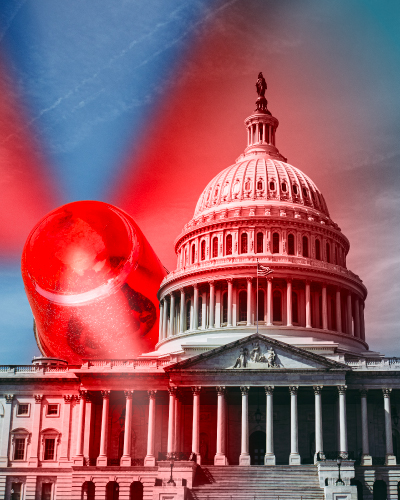5 Things to Know About Being a Poll Worker and Protecting the Right to Vote
Aug 29, 2024
Protect the Right to Vote: Be a Poll Worker on Election Day Sign Up Today
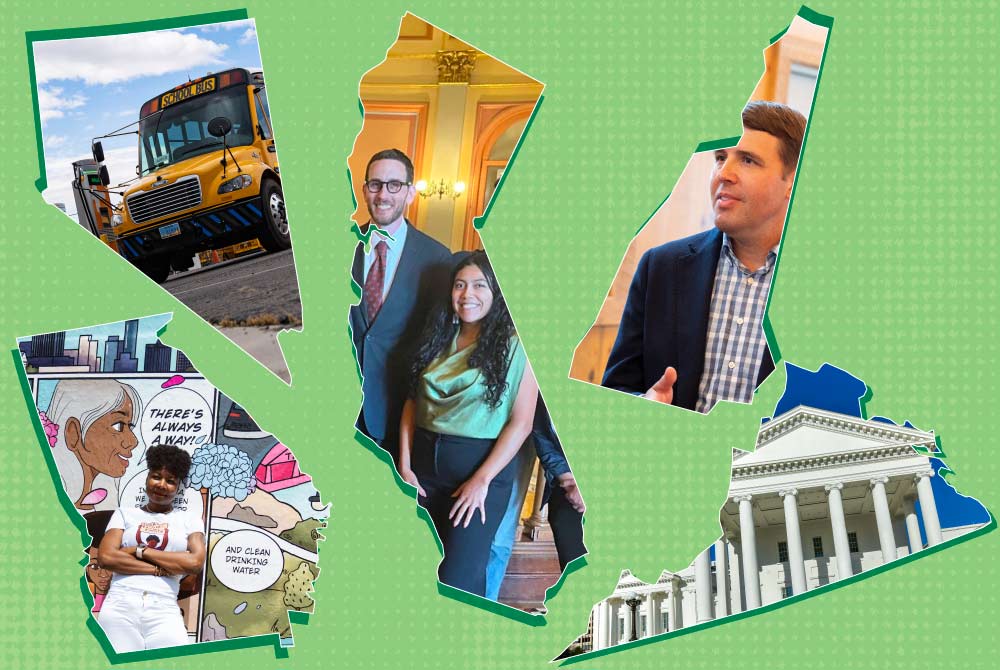
Our nation has been indelibly enriched by the contributions and cultures of people with heritage rooted across Latin America, including the Caribbean, Central and South America, and Mexico. This month, in observance of National Hispanic Heritage Month, we pay tribute to their many contributions. In our first and fourth stories below, we highlight the historic and ongoing accomplishments of Hispanic and Latinx activists working to protect our air, waters, and communities from environmental threats and climate change.
This month’s Top 5 also focuses on the outstanding progress being made in the states thanks to the work of LCV’s 30+ state affiliates — with the recognition that state progress drives national progress and vice versa. And, this month, we’re launching a new feature, “The Jolt,” which we hope will provide you with a quick dose of energy and inspiration. Read this month’s LCV Top 5 stories.
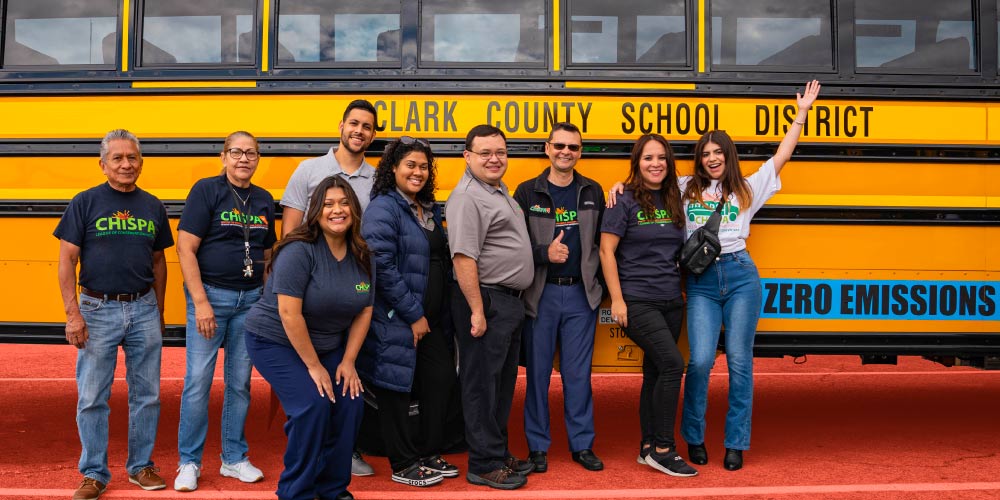
Diesel fuel is a known deadly carcinogen. And yet, in the U.S., every day, 18 million children ride to and from school on dirty diesel buses. Since 2016, Chispa — an LCV program that builds the power of Latinx communities to achieve climate justice and environmental protections — has been successfully working to transition our nation’s 480,000 diesel school buses to a clean, electric fleet by shining a light on this issue and mobilizing concerned families and communities.
Chispa originally launched the Clean Buses for Healthy Niños campaign to help direct Volkswagen lawsuit settlement dollars to the purchase of clean school buses. Since then, Chispa co-founded the Alliance for Electric School Buses, which includes over 30 organizations, and today, Chispa programs in five states are actively working as part of the Alliance to secure and equitably allocate additional federal investments in clean school buses.
Black, Latinx, and low-income children are more frequently exposed to diesel pollution because they are more likely to ride the bus to school — and they are disproportionately hospitalized and die from asthma. So Chispa and the Alliance are especially focused on facilitating an equitable transition to an all-electric school bus fleet centered on the communities most impacted by diesel pollution.
The science is clear. Exposure to diesel fumes causes an array of issues for children, including:
Chispa is successfully confronting these health problems using a range of tactics, including training community leaders, canvassing, phone banking, hosting house parties, storytelling, and lobbying elected officials.
These tactics work. The first round of federal funding for clean school buses was released by the Environmental Protection Agency (EPA) in 2022, doubling the number of electric school buses in use across the country and providing the following benefits to communities:
The Clark County School District in Las Vegas, Nevada is home to the nation’s largest school bus fleet — with 1,924 buses transporting 125,000 students daily. The district introduced its first electric buses earlier this year after Chispa Nevada helped secure federal funding there.
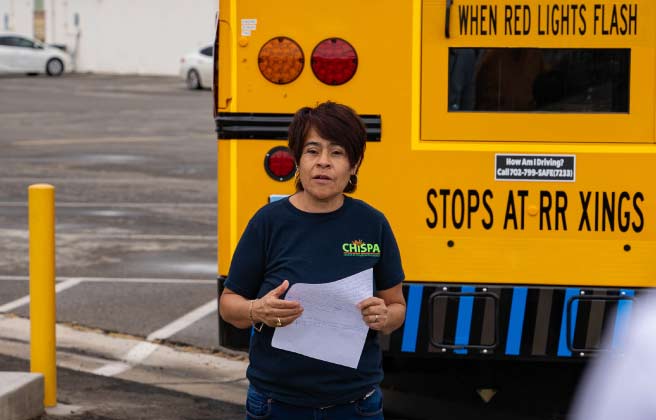
Later this fall, additional federal grant recipients will be announced by the EPA, and Chispa and the Alliance for Electric School Buses will continue working to ensure that this funding reaches the communities that need it most. Read about Chispa Nevada’s success and meet the leaders who helped drive Clark County’s progress.
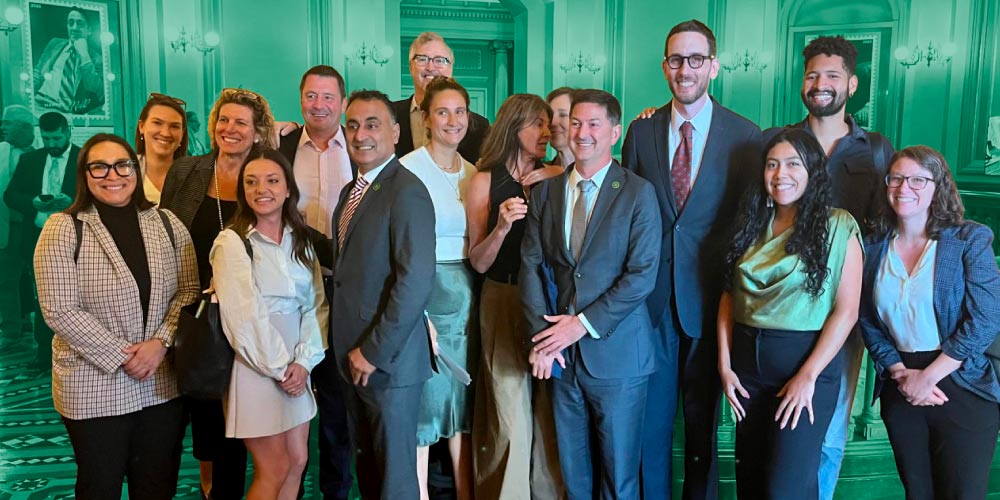
The California economy is the fifth largest in the world, just behind Germany and ahead of India. As a result, what happens in California influences what happens elsewhere in the U.S. and well beyond our borders.
That’s one of many reasons we were thrilled earlier this month when California lawmakers passed two groundbreaking bills that require large corporations to disclose their greenhouse gas emissions and their climate-related financial risks.
The Climate Corporate Data Accountability Act requires U.S.-based companies that do business in the Golden State to disclose their climate-warming emissions and will discourage greenwashing — marketing that falsely portrays a company’s efforts to reduce emissions. The requirements will apply to over 5,000 companies that earn at least $1 billion each year, including Apple, Chevron, ExxonMobil, and Walmart, who must also include indirect supply-chain emissions in their reports.
California lawmakers also passed the Climate-Related Financial Risk Act, which requires companies to report their climate-related financial risks and declare the mitigation measures they’re taking to address these risks.
LCV’s California affiliate, California Environmental Voters, supported the bill and played a large role in getting it passed over several years:
California Environmental Voters also produced this video to help educate the public about this important legislation:
This legislation — and its resulting corporate transparency and accountability — is a big win not only for California, but also the nation. A 2021 survey found that 87 percent of people in the U.S. believe it’s important for corporations to be transparent about their climate impacts. Despite the legislation’s popularity, California Environmental Voters anticipates upcoming challenges from the state’s Chamber of Commerce and is prepared to defend this groundbreaking achievement. Read about the California legislation and the business community’s response to it.
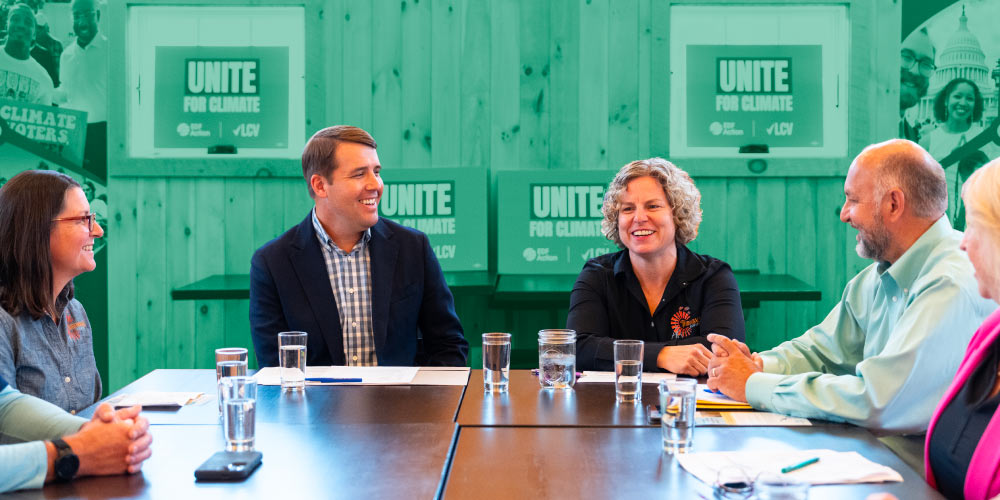
Like people all across the country, people in New Hampshire rely on small businesses for a wide range of goods and services. In fact, the Granite State is home to over 135,000 small enterprises, representing 99 percent of all businesses in the state.
Women-owned Throwback Brewery in North Hampton, like other New Hampshire small businesses, is saving money and building sustainability while helping the transition to a clean energy economy. Throwback’s recently installed rooftop solar array generates 100 percent of the brewery’s energy needs year-round while providing jobs for the town’s local solar business.
LCV and EDF Action recently participated in a climate and clean energy roundtable hosted by the brewery that included business leaders and elected officials examining the ways that federal investments of the affordable clean energy plan — including those from the 2022 Inflation Reduction Act (IRA) — are catalyzing the move to clean energy in the state.
Specific affordable clean energy plan benefits in New Hampshire, which are similar to those in other states, include:
Learn more about how the IRA is helping businesses, families, and farmers in New Hampshire.
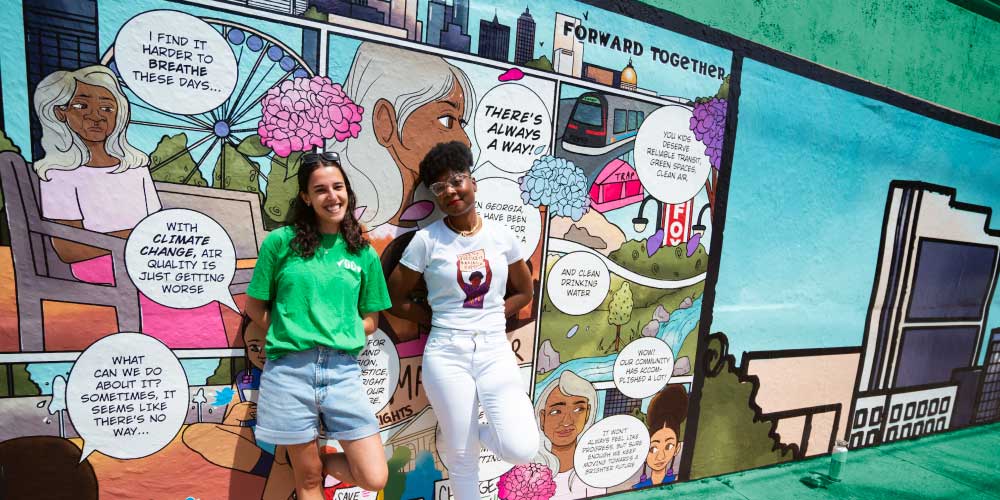
Art and activism go together like peanut butter and jelly. During the Great Depression, U.S. artists began to address politics in their work on a wide scale — using visual language to influence society on issues ranging from poverty to lynchings to workers’ rights. The tradition waned a bit in the decades that followed and was eventually reignited in the 1990s. At that time, the term “artivism” was coined in reference to the gathering of Chicano artists from East Los Angeles and the Zapatistas in Chiapas, Mexico.
Since then, artivism has evolved as a means to raise awareness of social, environmental, and technological problems. Today, LCV and our state affiliates support artists who build on this tradition by finding ways to mobilize communities through visual language and expression. In 2022, LCV and Chispa teamed up with artists such as Daniel González in Arizona and Guilherme Lemes in Nevada who are building community power and calling attention to climate justice, voting rights, and other issues.
Earlier this year, a new mural was unveiled in the Summerhill neighborhood of Atlanta highlighting climate justice and celebrating the historic federal climate investments included in the Inflation Reduction Act. The artist, Caitlin Rogers, aims to inspire Georgians to continue fighting to bring environmental justice to their communities.
Rogers worked with Georgia Conservation Voters and local partners to create the mural, which features the Atlanta skyline as seen from redlined communities and a triptych comic strip depicting Georgia’s history of activism. The mural also spotlights civil rights and LGBTQ+ marches alongside a hopeful environmental justice message. See the mural, read about the artist’s inspiration, and watch the unveiling video.
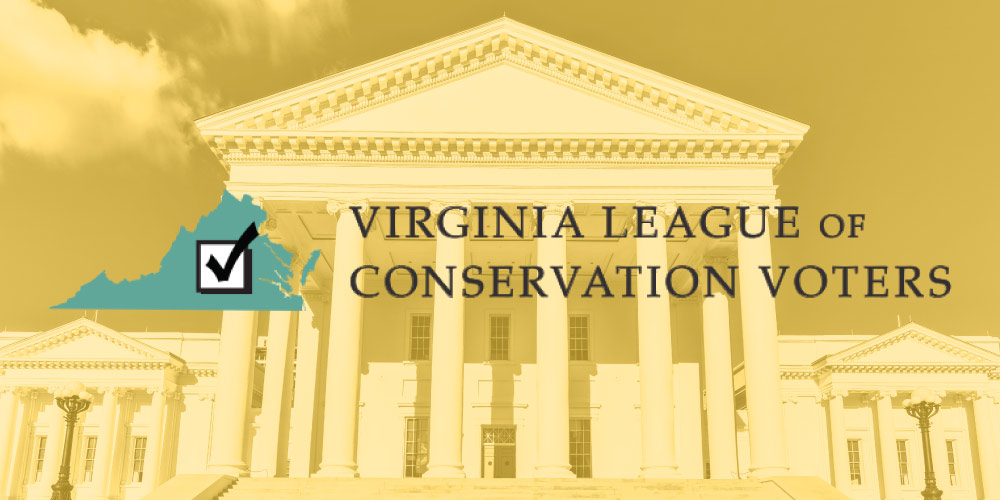
The stakes are high in Virginia’s elections this fall. All 140 seats in the state General Assembly are up for grabs, and the results will shape the trajectory of climate action and environmental protection in the state for years to come.
If anti-environment, anti-democracy Republicans maintain a majority in the Virginia House and win a majority in the Senate, they’ll gain a trifecta — controlling both chambers and the governorship and paving the way for a pro-polluter policy agenda in a state that has been becoming more pro-environment and pro-democracy for the better part of two decades.
In response, the Virginia League of Conservation Voters (VALCV) recently announced that its political action committee (PAC) will be making its largest investment to date in must-win legislative races — launching a $2 million campaign to help elect environmental leaders to the state House and Senate. Investments include:
Virginia LCV Executive Director Michael Town said, “Governor Youngkin and his extreme allies up and down the ticket have one thing in common: they want to dismantle the progress we’ve made in Virginia and put big polluters’ interests above what’s best for our Commonwealth.”
The state’s races are also garnering national attention, with the Democratic National Committee (DNC) giving the Democratic Party of Virginia an extra $1.5 million to support Democratic candidates in state legislative races — 15 times more than the DNC invested ahead of the 2019 elections.
This is Virginia’s first election under new state legislative maps following the 2020 redistricting cycle. Virginia’s early voting window began on September 22. Read more about VALCV-PAC’s plans to elect pro-environment candidates in key races.
Enough is Enough! California Sues Big Oil
— California Attorney General Rob Bonta, regarding the state’s lawsuit against ExxonMobil, Shell, BP, ConocoPhillips, Chevron, and the American Petroleum Institute. Read more.
The Best Thing You Can Do Right Now
Far-right Republicans are dead set on rescinding climate action and clean energy investments from the federal clean energy plan and slashing critical funding for environmental programs. And they’re willing to shut down the government to do it. Tell Congress to protect these federal investments and the climate action benefits they’re generating in states across the country.
Tell Congress to Protect Climate Progress